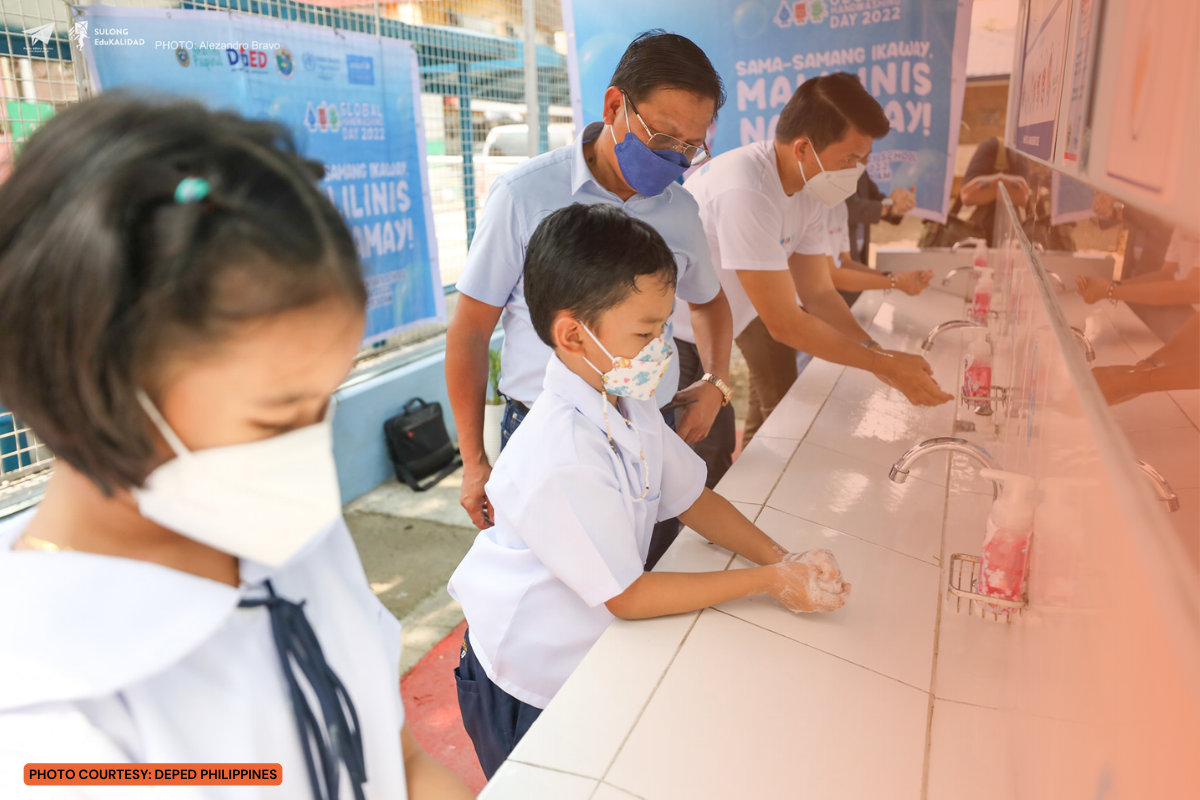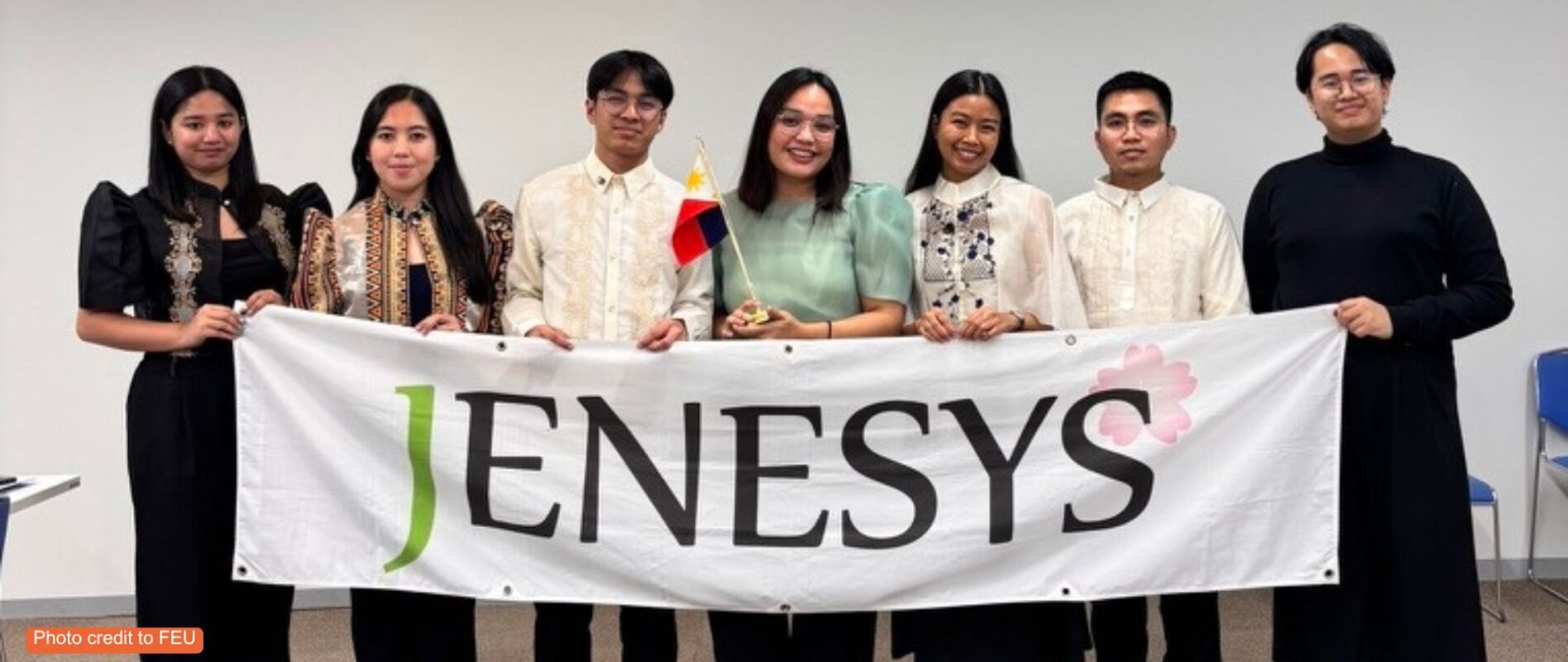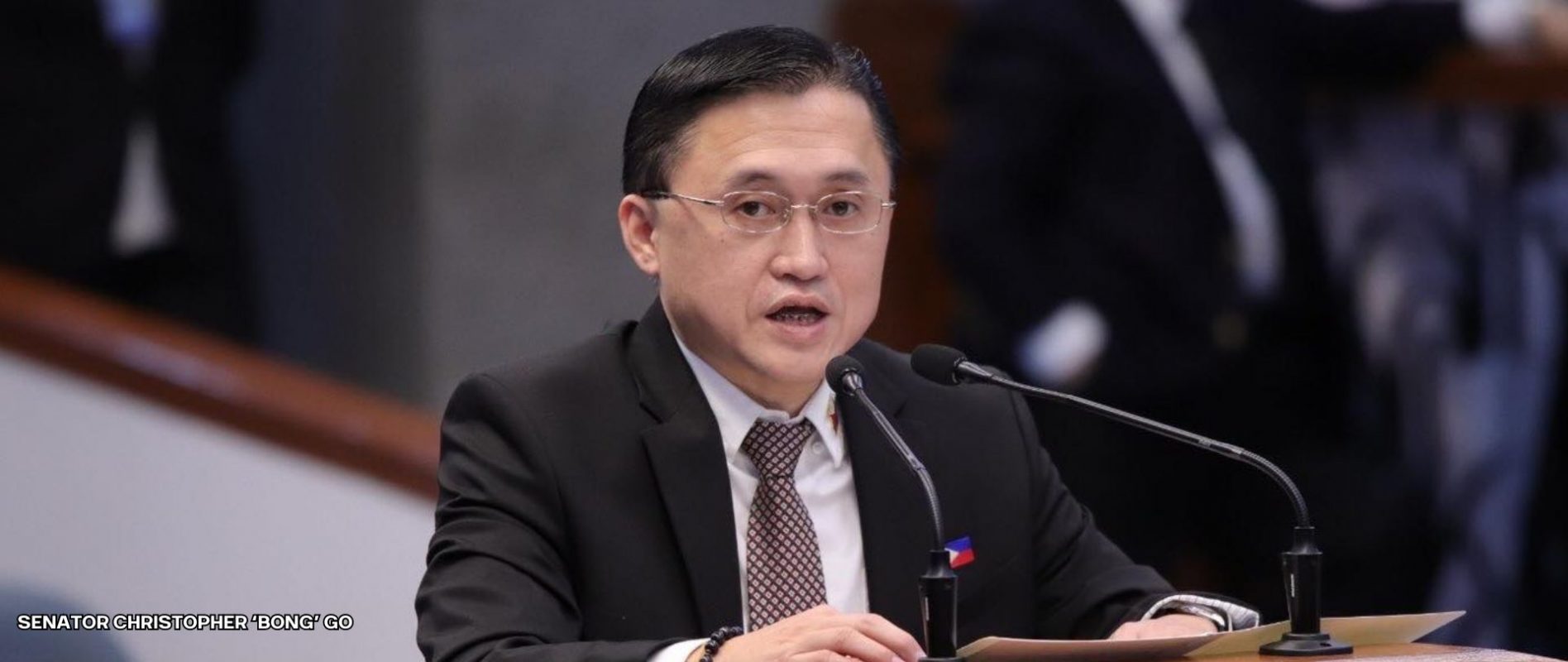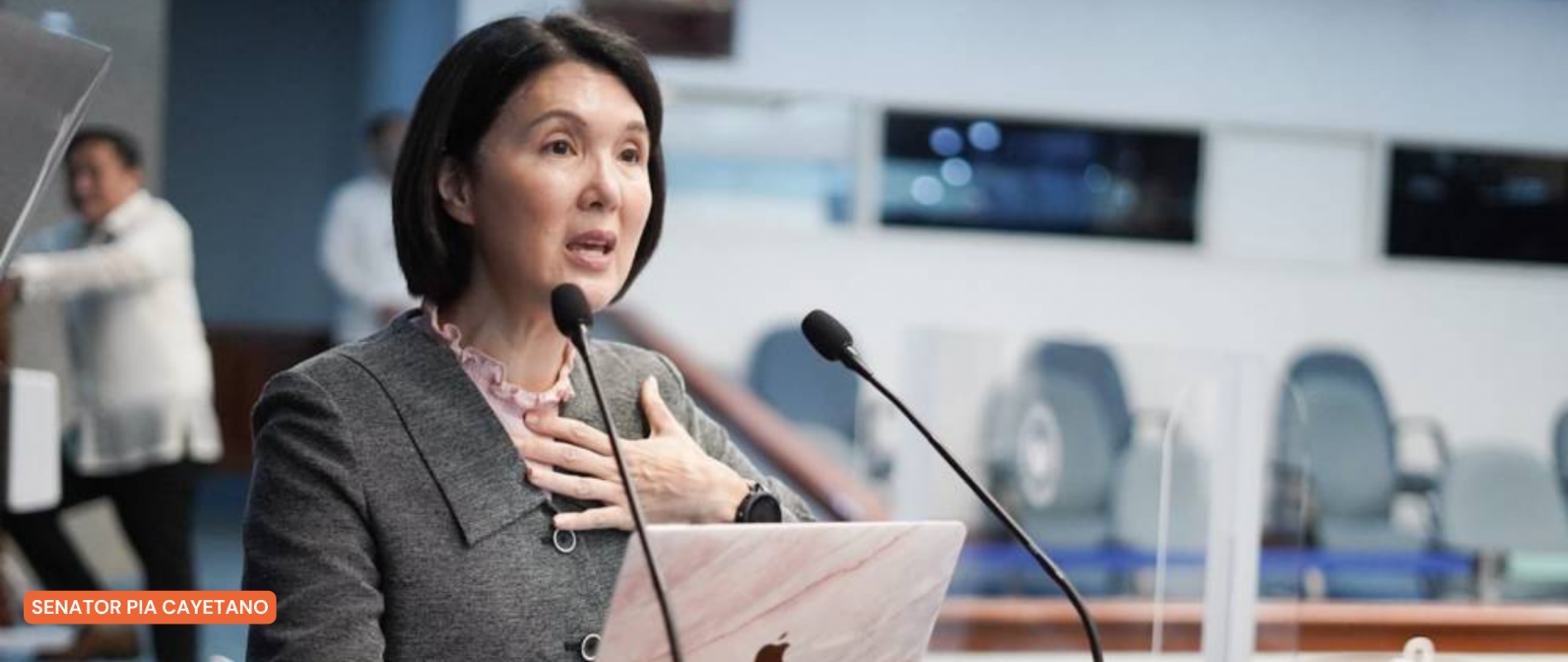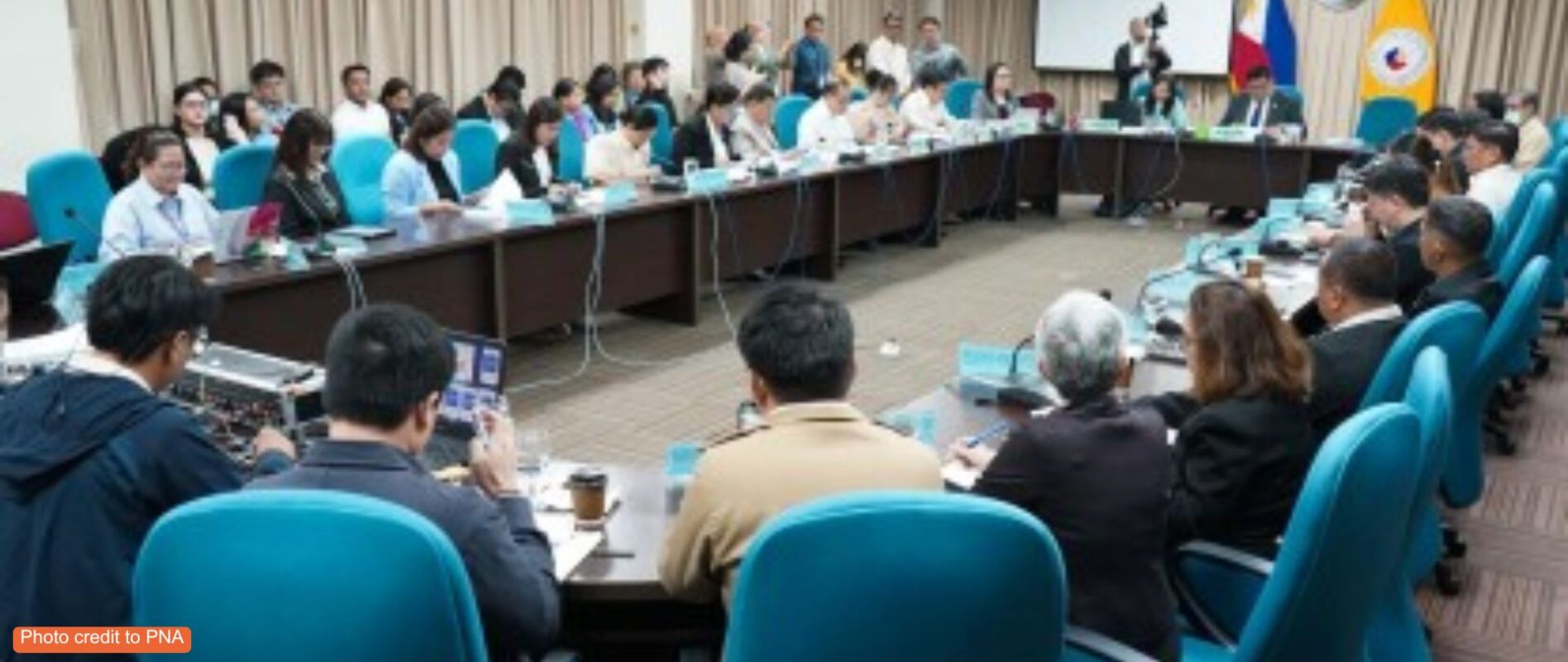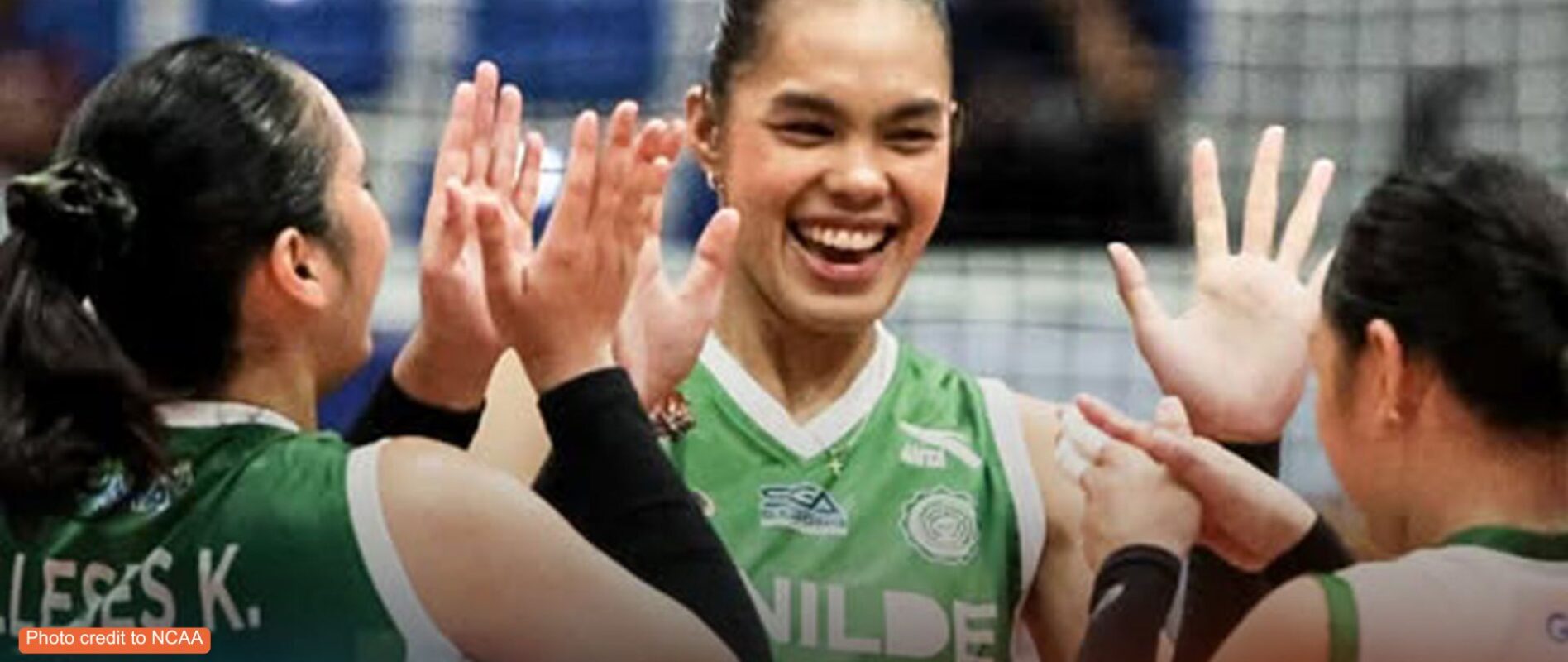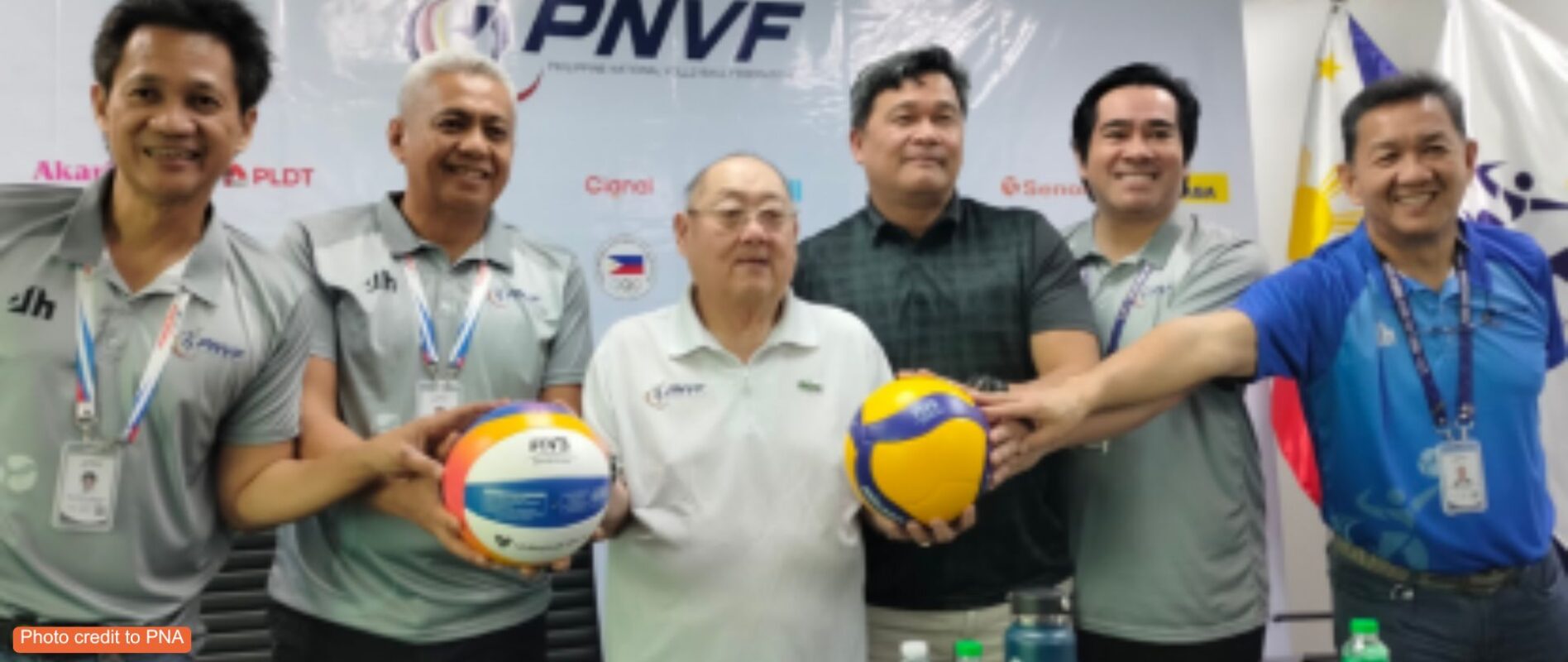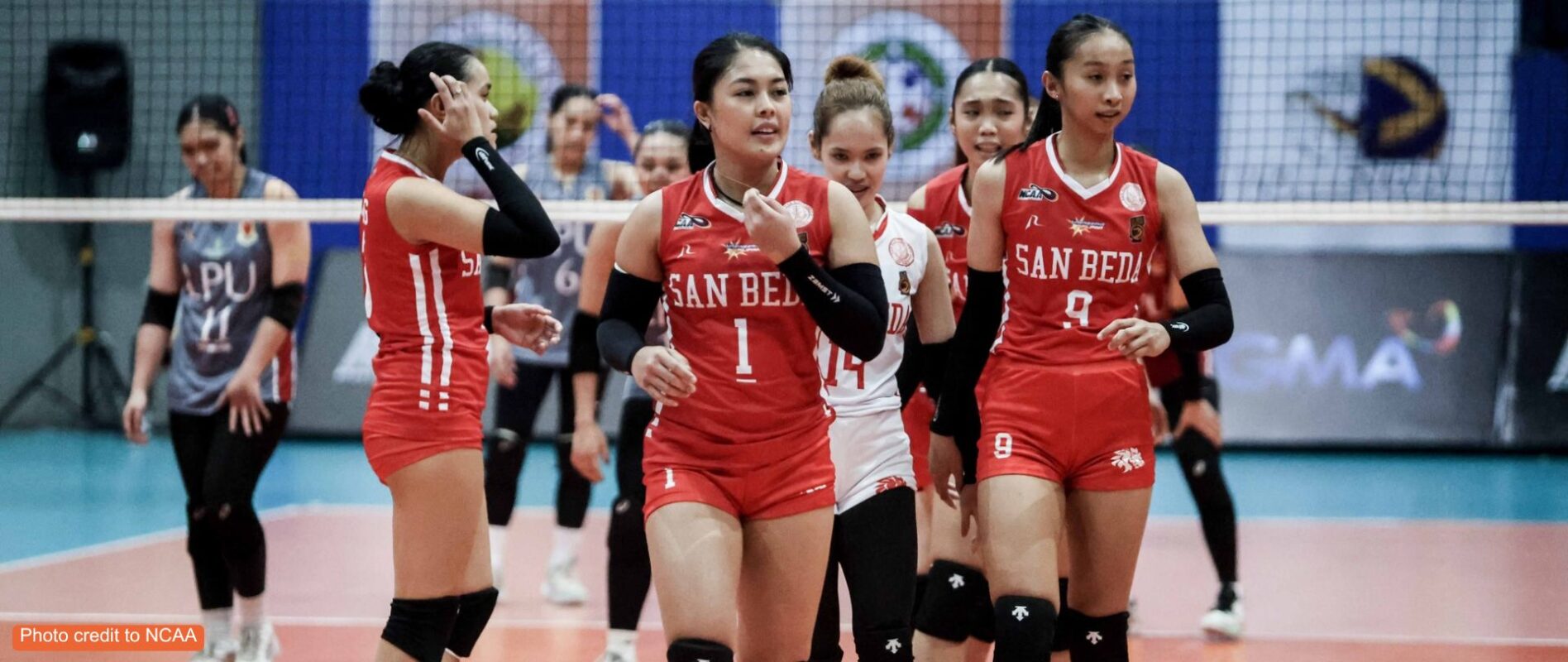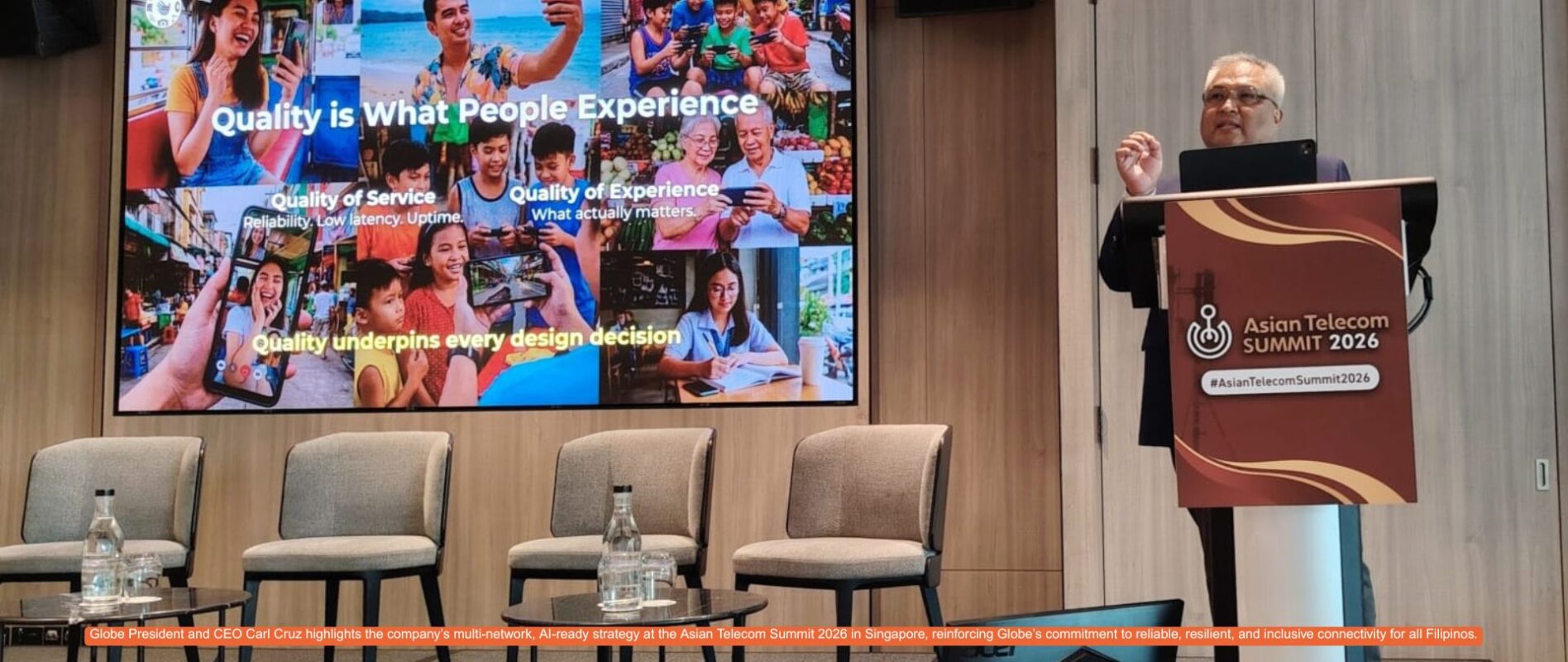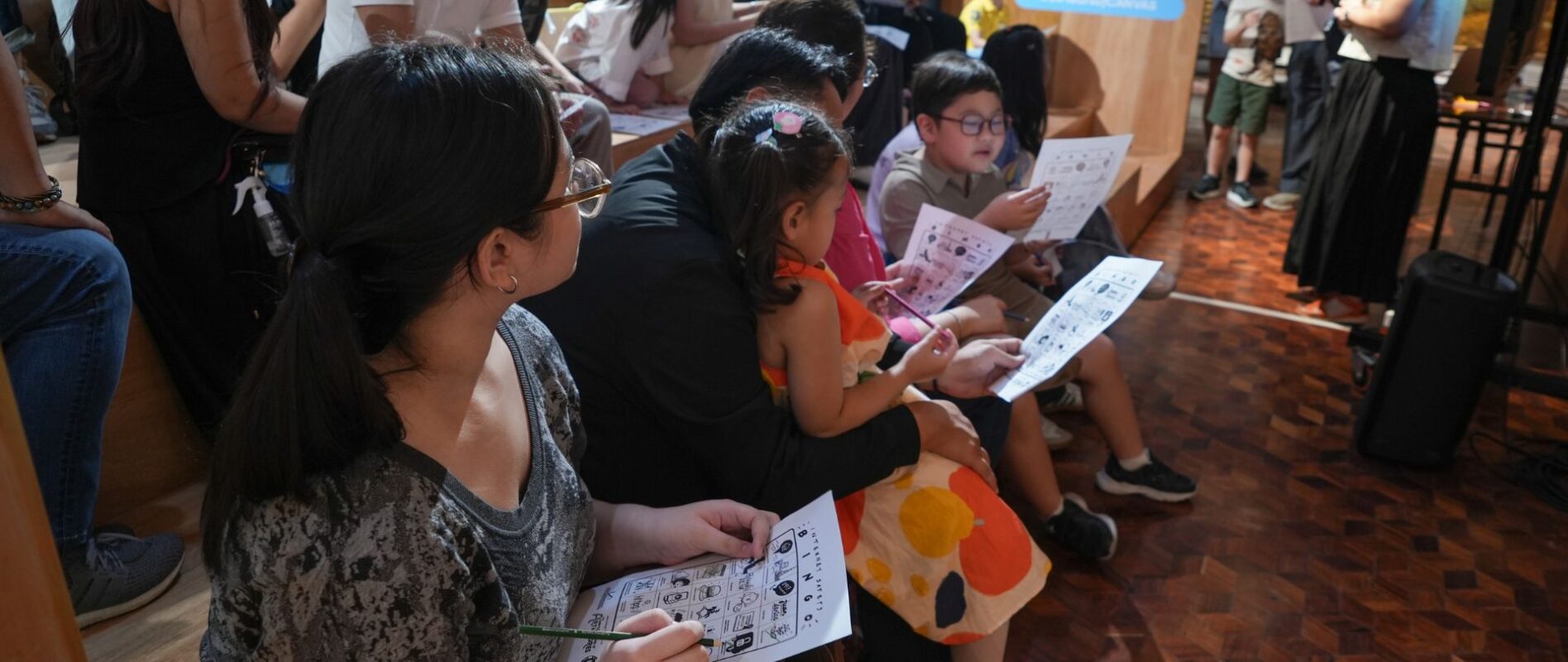GLOBAL HANDWASHING DAY INILUNSAD SA MARIKINA
BINIGYANG-DIIN ng Department of Education at mga partner ang pangangailangan na taasan ang access sa handwashing facilities upang makalikha ng ligtas na learning environment.
Napag-alaman sa WHO-UNICEF Joint Monitoring Panel for Water, Sanitation and Hygiene 2021 update na 64 porsiyento ng mga paaralan ang may access sa handwashing facilities. Naglaan ang DepEd ng ilang milyong piso para sa pagpapatayo at pagpapagawa ng water, sanitation, and hygiene facilities sa mga pampublikong paaralan.
Sa 2022 Global Handwashing Day, nanawagan ang DepEd, Department of Health, UNICEF, WHO at Lungsod ng Marikina sa iba’t ibang sektor upang isulong ang tamang handwashing. Upang markahan ang tema ngayong taon na “Sama-samang ikaway, Malilinisna Kamay!,” nagtipon ang mga partner sa Marikina Elementary School upang muling pagtibayin ang kanilang commitment na palakasin ang mga programa sa hand hygiene at pataasin ang access sa hand hygiene facilities para sa mga paaralan at iba pang community spaces, tulad ng mga pamilihan, health center, at opisina.
Ipinakikita sa pag-aaral na nakapagpapababa ng kaso ng diarrhea ng 30 porsiyento at respiratory infections hanggang 20 porsiyento ang handwashing na may kasamang sabon. Nagagamot ang diarrhea at pneumonia ngunit sa Pilipinas, kabilang ito sa 10 pangunahing dahilan ng pagkamatay ng mga bata edad 1 hanggang 4, ayon sa 2019 Philippine Health Statistics ng DOH. Nakadaragdag din ang handwashing sa reduction, prevention, at elimination ng stunting. Tinatayang nasa 30 porsiyento ng mga bata edad lima pababa sa Pilipinas ang stunted, ayon sa Food and Nutrition Institute.
“Hand hygiene promotion has always been part of our curriculum implementation, infrastructure development and school governance. And in the face of Covid19, we intensifiedour WASH in Schools (WinS) program, while underlining additional infection prevention andcontrol measures, to promote hand hygiene,” wika ni Pangalawang Kalihim para sa Field Operations and Governance Atty. Revsee Escobedo sa kanyang mensahe na binasa ni Bureau of Learner Support Services Director Lope Santos III.
“Since the beginning of the Covid19 pandemic and even prior, the DOH has strongly advocated for the regular use and practice of proper handwashing — not only does it help get rid of viruses and other pathogens which in turn prevents transmission of COVID and other communicable diseases, but it also strengthens and instill good and healthy habits of protection not just for children and schools but for healthy communities as well,” sabi ni DOH Officer-in-Charge Dr. Maria Rosario Singh-Vergeire.
Napag-alamang naging epektibo sa pagpapataas ng handwashing practice ng mga mag-aaral ng 17.3 porsiyento, ayon sa ginawang pag-aaral ng DepEd at UNICEF sa mga paaralan sa Zamboanga del Norte, ang mga handwashing nudges, tulad ng makukulay na mga yapak patungo sa mga handwashing station, “watching” eyes, arrow stickers na nagtuturo sa sabon, at mga poster na may payak na mga mensahe.
Ang DOH, kasama ang UNICEF ay nagpapatupad din ng Wash O’Clock national handwashing campaign na gumagamit ng mga behavioral nudges na ito upang paalalahanan ang publiko na maghugas ng kamay gamit ang sabon sa mahahalagang oras, tulad ng bago kumain at matapos gumamit ng palikuran. Sa kasalukuyan, umabot na sa 3.4 milyon ang mga Pilipinong naabot ng kampanya.
Sa Lungsod ng Marikina, isinagawa at positibong tinanggap ang multi-sectoral initiative na ito.
“The City Government of Marikina puts primary importance on the health of every Marikina family. One of our longstanding priorities is to provide and maintain a clean and safe environment, especially for our children. We have been encouraging frequent handwashing as part of our Covid19 health protocols, and now we are excited to implement the Health Promotion Playbook on behavioral nudges in our communities. This will help make handwashing with soap a healthy habit in Marikina,” ani Mayor Marcelino Teodoro.
Binigyang-diin ng mga development partner ang kanilang joint actions bilang susi sa pagsisiguro sa malawak na access sa mga hand hygiene facility.
“The commitment of our partners – from the national and local governments – is a welcome initiative to help us prepare for future outbreaks. Everyone has their own role to play to make universal access to hand hygiene a reality for all, including across schools, communities, public spaces, and health care facilities,” pahayag ni Dr. Graham Harrison, Officer-in-Charge ng WHO Philippines.
Dagdag naman ni Oyunsaikhan Dendevnorov, UNICEF Representative in the Philippines, “Handwashing is one of the basic yet most critical ways to improve children’s health and well-being. Access to handwashing facilities and supplies is fundamental in ensuring children’s right to a clean, healthy environment that supports their optimal growth and development. Let us all work together to achieve universal hand hygiene for children.”
Bilang suporta sa muling pagbubukas ng mga paaralan at pagbangon sa Super Typhoon Odette, tumulong ang UNICEF, sa pakikipag-ugnayan din ng mga partner, sa pagtatayo o pagsasaayos ng mga handwashing facility sa 96 paaralan at 6 na healthcare facilities; nagpapatuloy rin ang pagpapaganda ng mga handwashing facility sa iba pang 107 mga paaralan at child development centers.

